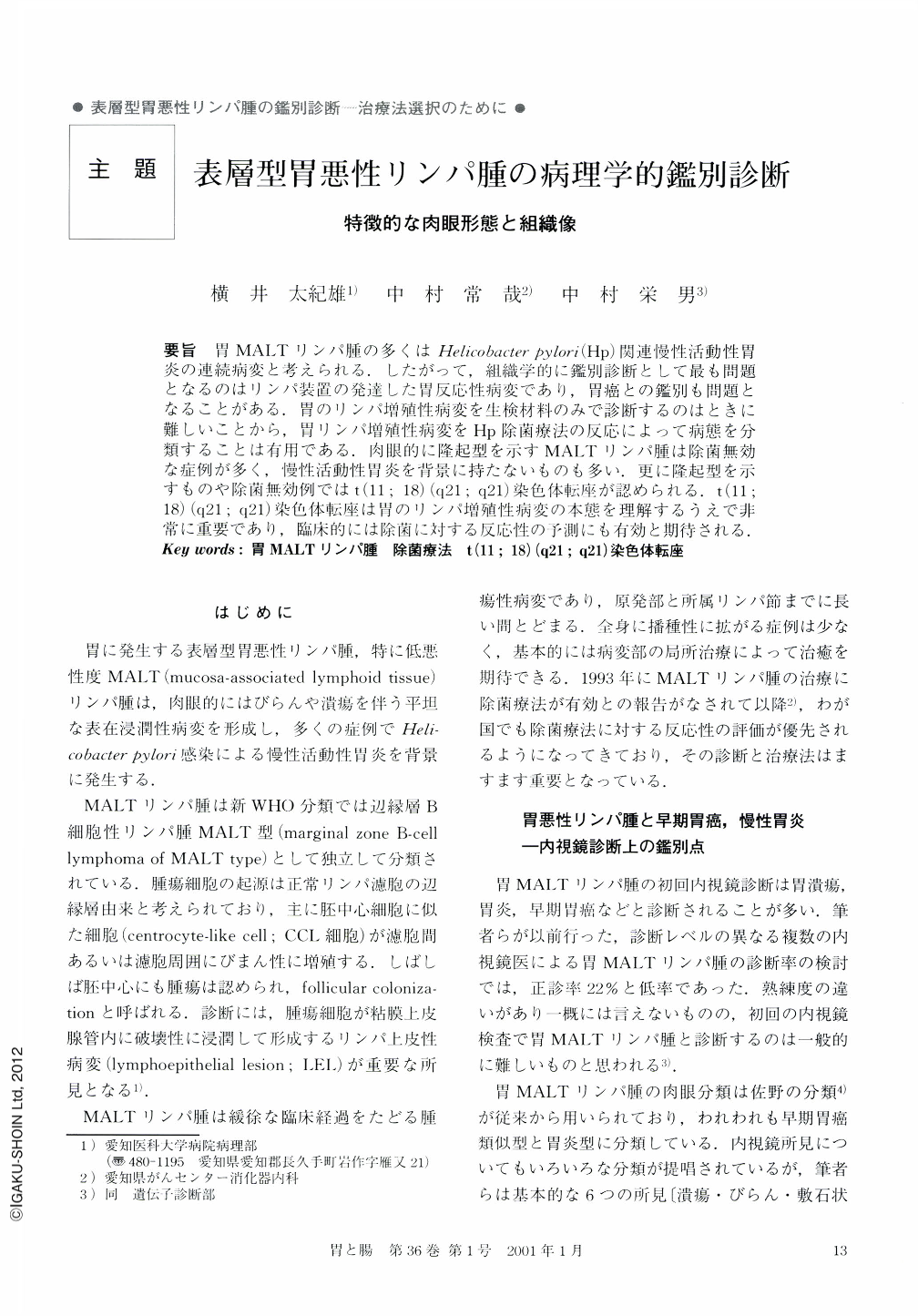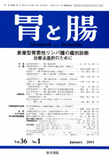Japanese
English
- 有料閲覧
- Abstract 文献概要
- 1ページ目 Look Inside
- サイト内被引用 Cited by
要旨 胃MALTリンパ腫の多くはHelicobacter Pylori(Hp)関連慢性活動性胃炎の連続病変と考えられる.したがって,組織学的に鑑別診断として最も問題となるのはリンパ装置の発達した胃反応性病変であり,胃癌との鑑別も問題となることがある.胃のリンパ増殖性病変を生検材料のみで診断するのはときに難しいことから,胃リンパ増殖性病変をHp除菌療法の反応によって病態を分類することは有用である.肉眼的に隆起型を示すMALTリンパ腫は除菌無効な症例が多く,慢性活動性胃炎を背景に持たないものも多い.更に隆起型を示すものや除菌無効例ではt(11;18)(q21;q21)染色体転座が認められる.t(11;18)(q21;q21)染色体転座は胃のリンパ増殖性病変の本態を理解するうえで非常に重要であり,臨床的には除菌に対する反応性の予測にも有効と期待される.
Most gastric mucosa-associated lymphoid tissue (MALT) lymphomas are thought to be continuous Helicobacter pylori (Hp)-associated chronic active gastritis lesions. Therefore, the most difficult problem in histological differential diagnosis is the presence of developed gastric reactive lesions in the lymphoid apparatus, which can be difficult to differentiate from gastric cancer. Judgment solely from biopsies of gastric lymphoid proliferative lesions is at times not possible, so classification of gastric lymphoid proliferative disorders by Hp eradication reaction is useful. In most cases of MALT lymphoma with polypoid appearance (polypoid gastric MALT lymphoma), bacterial eradication is ineffective. There are also many cases of polypoid gastric MALT lymphoma with no chronic active gastritis background. Moreover, t(11;18) (q21;q21) chromosome translocation is observed in polypoid lesions and/or in cases in which bacterial eradication is not effective. The t(11;18) (q21;q21) chromosome translocation is extremely valuable in understanding the nature of gastric lymphoid proliferative lesions and it is also expected to be clinically useful in predicting responsiveness to bacterial eradication.

Copyright © 2001, Igaku-Shoin Ltd. All rights reserved.


